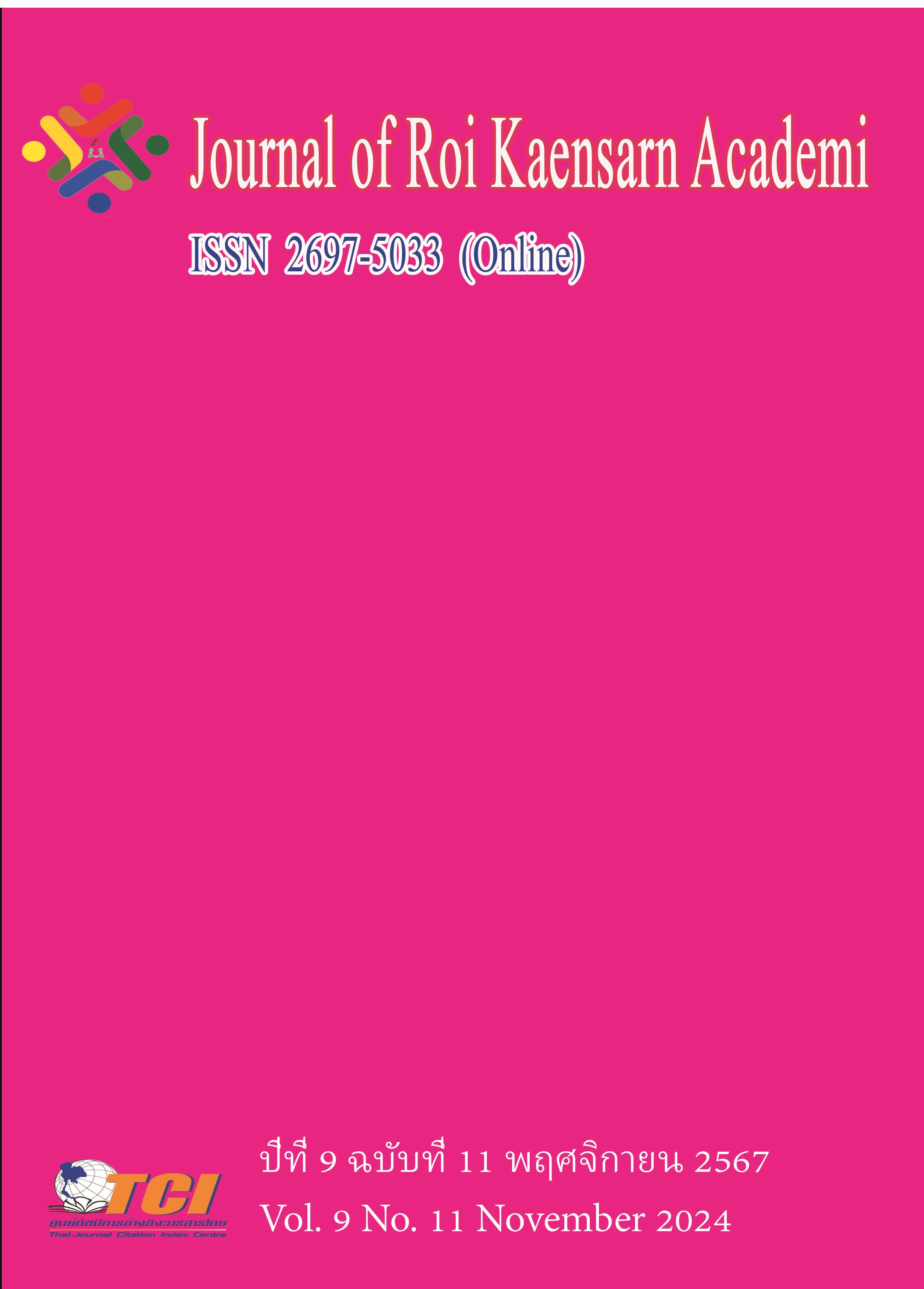A study on psychological resilience and mental health of vocational college students in Henan Province, China: using self-efficacy as a mediating variable and social support as a moderating variable
Main Article Content
บทคัดย่อ
This study aims to explore the psychological resilience, self-efficacy, social support, and mental health status of vocational college students in Henan Province, China. Utilizing a quantitative research approach, the study employed convenience sampling to select 1032 students from five vocational colleges as the sample. Standardized questionnaires, including the Psychological Resilience Scale, Self-Efficacy Scale, Social Support Scale, and Mental Health Scale, were utilized for data collection. Statistical analysis was conducted using SPSS and AMOS to ensure the validity and reliability of the research findings.
The results indicate significant differences in psychological resilience, self-efficacy, social support, and mental health among students with different background variables such as gender, grade level, and family economic status. Furthermore, the study found that self-efficacy mediates the impact of psychological resilience on mental health, while social support moderates this relationship. These findings suggest that vocational college students' mental health can be improved by enhancing their psychological resilience, self-efficacy, and social support networks. The research provides practical implications for education managers and mental health workers to develop targeted mental health education and intervention programs tailored to the unique needs of vocational college students in Henan Province.
Article Details
References
Bandura, A. (1997). Self-efficacy: The exercise of control. W.H. Freeman.
Cohen, S., & Wills, T. A. (1985). Stress, social support, and the buffering hypothesis. Psychological Bulletin, 98 (2), 310-357.
Luthar, S. S., Cicchetti, D., & Becker, B. (2000). The construct of resilience: A critical evaluation and guidelines for future work. Child Development, 71 (3), 543-562.
Masten, A. S. (2001). Ordinary magic: Resilience processes in development. American Psychologist, 56 (3), 227-238.
Masten, A. S. (2014). Ordinary magic: Resilience in development. The Guilford Press.
Schwarzer, R., & Warner, L. M. (2013). Perceived self-efficacy and its relationship to resilience. In S. Prince-Embury & D. H. Saklofske (Eds.), Resilience in children, adolescents, and adults (pp. 139-150). Springer.
Wang, J., Mann, F., Lloyd-Evans, B., Ma, R., & Johnson, S. (2014). Associations between loneliness and perceived social support and outcomes of mental health problems: A systematic review. BMC Psychiatry, 14, 17.
Wang, Y. (2020). Psychological resilience and mental health among college students: A meta-analysis. Journal of Mental Health Research, 18 (2), 115-123.
Wu, Q., Xie, B., & Liu, D. (2021). The role of self-efficacy and social support in psychological resilience of college students. Journal of Educational Psychology, 113 (4), 617-628.
Zhou, Y., Li, H., & Sun, J. (2019). Challenges and opportunities in mental health education in vocational colleges: A case study of Henan Province. Chinese Journal of Health Education, 35 (6), 563-567.
